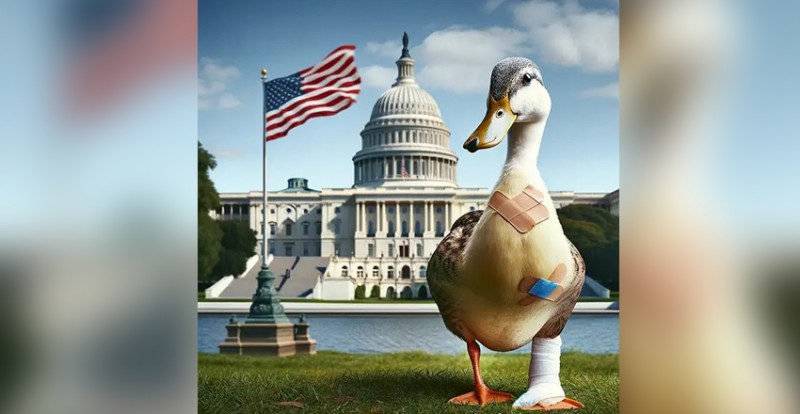
National Lame Duck Day, observed on February 6th, commemorates a unique aspect of American political history—the period between an election and the inauguration of a new administration. This day provides an opportunity to reflect on the challenges and opportunities presented during these transitional phases in governance.
The term "lame duck" originally referred to a bankrupt or financially insolvent person. In the realm of politics, it came to denote elected officials who have lost reelection or are nearing the end of their term and thus may lack the same level of influence or authority as their successors. While the concept of lame duck status has evolved over time, it remains a significant aspect of the political landscape.
National Lame Duck Day encourages reflection on the role of outgoing officials during transition periods. Despite being termed "lame ducks," these individuals still wield power and influence, often making critical decisions that shape the trajectory of governance. From passing last-minute legislation to implementing policy changes, lame duck officials play a crucial role in the continuity of government.
Moreover, National Lame Duck Day prompts discussions about the challenges and opportunities inherent in transitional periods. On one hand, lame duck sessions provide an opportunity for outgoing officials to address pressing issues and fulfill their duties before the new administration takes office. On the other hand, they can also be marked by political gridlock and uncertainty as power dynamics shift.
Additionally, National Lame Duck Day serves as a reminder of the importance of effective governance beyond partisan politics. Regardless of political affiliation, elected officials have a responsibility to serve the interests of their constituents and uphold the principles of democracy. By focusing on collaboration and constructive dialogue, lame duck sessions can be a time for bipartisan cooperation and progress.
In reflecting on National Lame Duck Day, it's essential to recognize the historical significance of transitional periods in American politics. From the peaceful transfer of power between administrations to the continuity of government during times of uncertainty, these transitions are a testament to the resilience of democratic institutions.
Ultimately, National Lame Duck Day encourages us to appreciate the complexities of governance and the importance of smooth transitions between administrations. By honoring this day, we reaffirm our commitment to upholding democratic principles and ensuring the continuity of government for generations to come.
Celebrating National Frozen Yogurt Day: A Healthier Alternative to Ice Cream